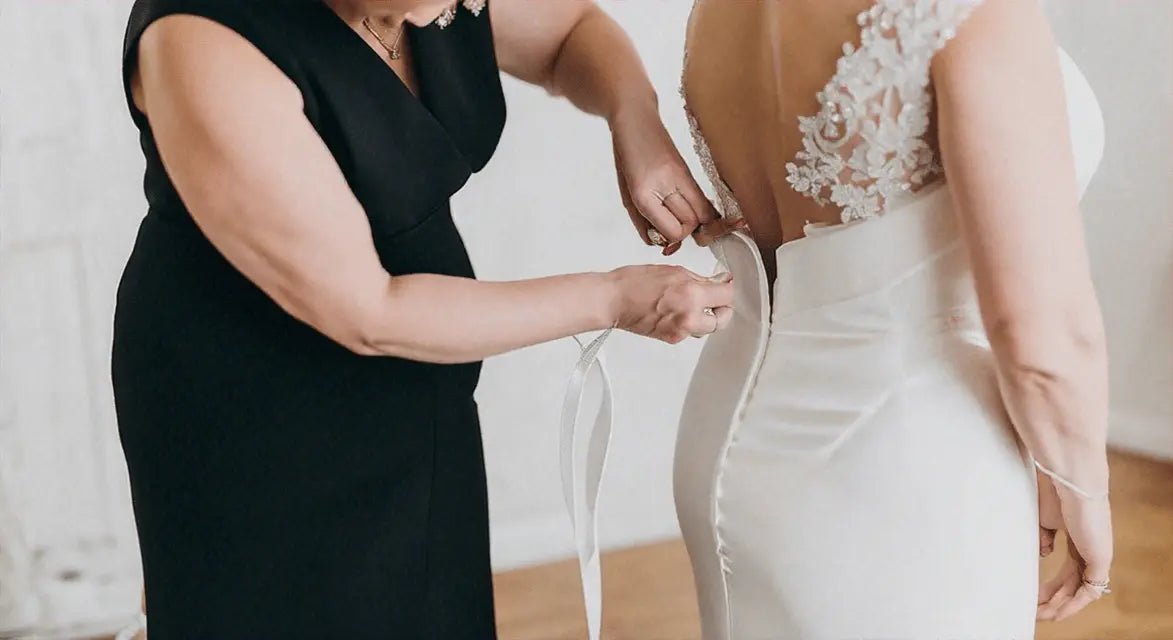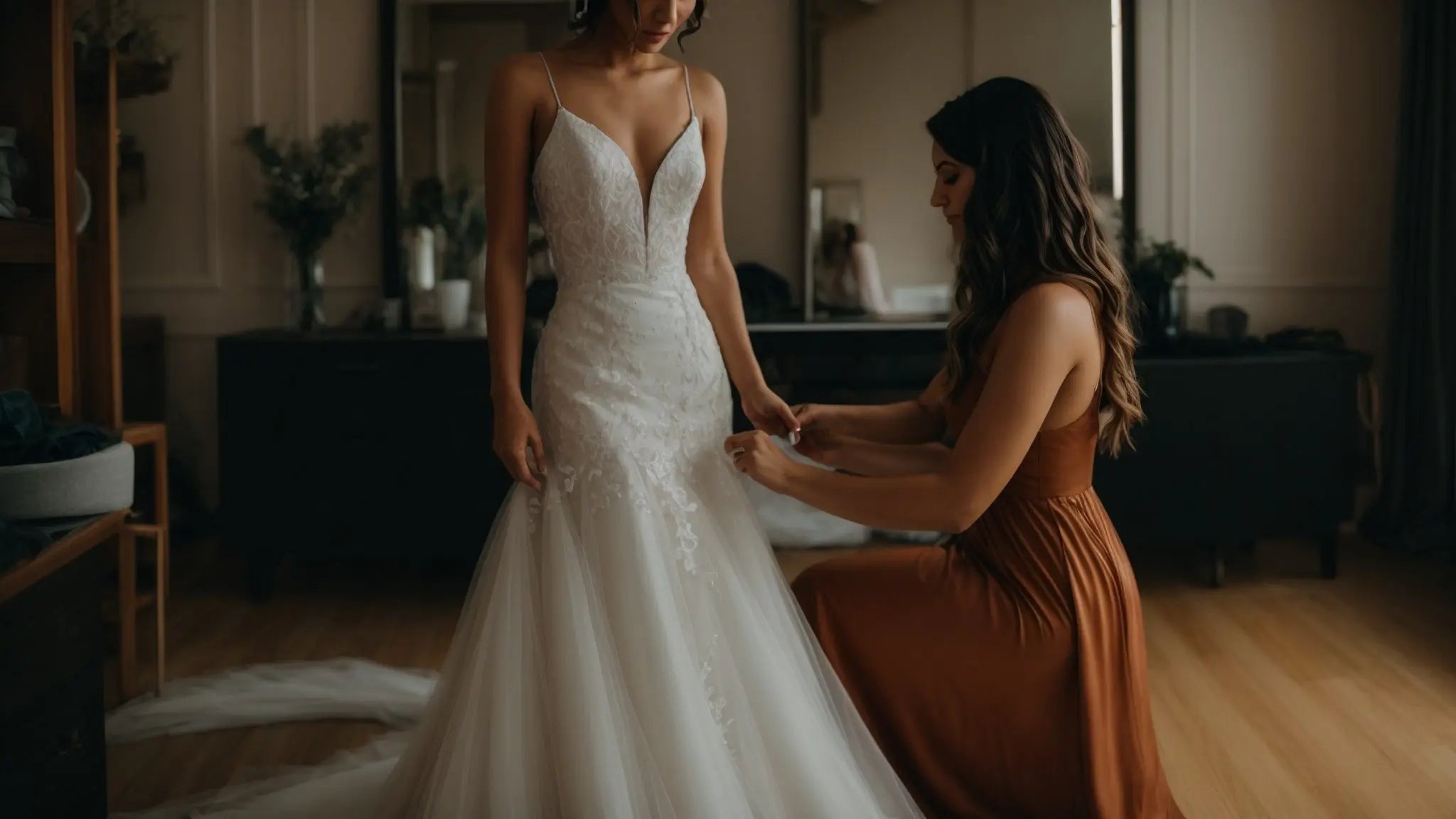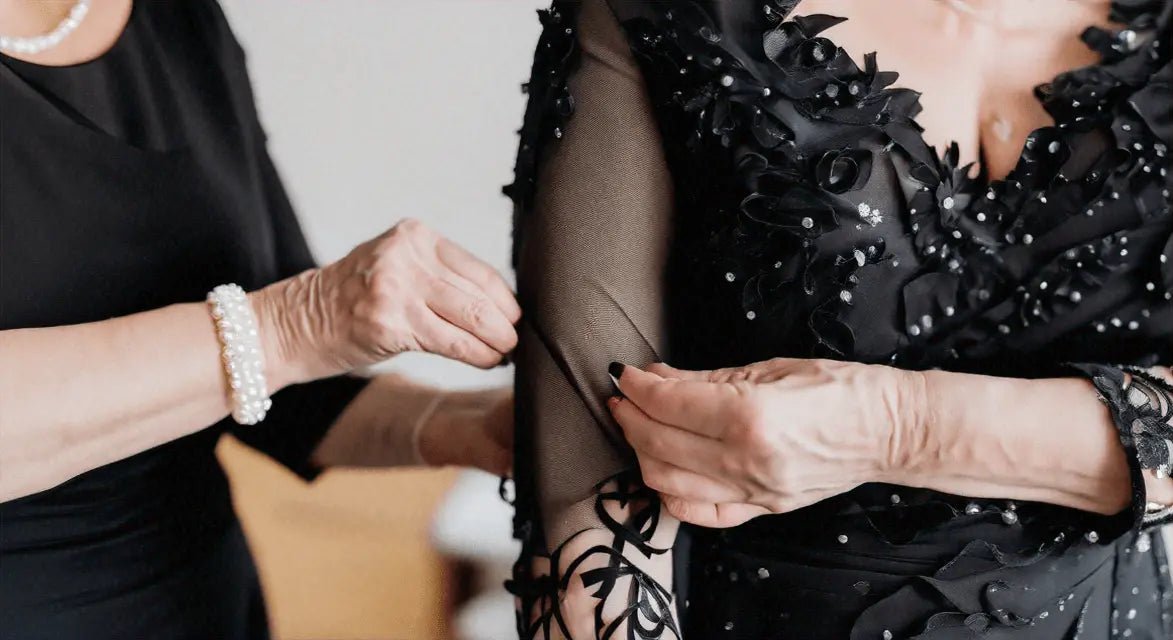
Your Guide to Perfect Plus Size Wedding Dress Alterations for Any Body
Your wedding day is one of the most significant moments in your life, and it deserves a dress that fits you perfectly. For plus-size brides, achieving that perfect fit can significantly enhance your confidence and comfort on this special day. Plus size wedding dress alterations are crucial for ensuring that your gown flatters your shape and style. Whether it's taking in the seams, adjusting the hemline, or making custom modifications, every alteration plays a vital role in creating a dress that feels like it was made just for you.
Understanding the Importance of Alterations
Why Alterations Matter
Understanding the vital role of alterations can help you appreciate the artistry involved in wedding dress adjustments. Wedding dresses, especially for plus-size brides, often come as standard sizes that may need changing to fit every unique body perfectly. Not only do alterations enhance the appearance of the dress, but they also contribute to your comfort throughout the day—allowing you to move freely while still looking stunning.
Common Areas for Adjustment
The most common areas requiring adjustment in plus-size wedding dresses include the bust, waist, and hips. Additionally, hemlines, train lengths, and sleeve fits may also need tailoring. Each of these adjustments helps to ensure that the dress complements your body shape, creates the desired silhouette, and allows you to engage comfortably in activities on your wedding day—from walking down the aisle to dancing at the reception.
The Alterations Process: What to Expect
Scheduling Your Fittings
The alteration process typically begins with scheduling multiple fittings leading up to your wedding day. It's best to begin this process as soon as you purchase your dress, ideally 8 to 10 months in advance. This way, you can account for any potential changes in your measurements and still ensure that your dress is ready well before the big day.
The Fitting Experience
During the first fitting, a skilled seamstress will assess the dress while you try it on. She will pin areas that need to be adjusted and take specific measurements. Expect to see marks where the dress needs to be altered. Follow-up fittings will allow you to see progress and make further adjustments if necessary. Being open and communicative during these appointments can help both you and your tailor achieve the desired result.
Key Alterations for Plus Size Wedding Dresses
Taking In or Letting Out the Dress
- Taking In: If your dress is slightly loose, taking in the seams can provide a snugger fit, especially in the bust and waist areas.
- Letting Out: If you need a bit more room, letting out seams can accommodate extra space without sacrificing style.
Hemline Adjustments
Altering the hemline is vital for ensuring you won't trip during your wedding celebrations. Working with your seamstress, decide whether you want a floor-length gown or a tea-length option. Remember to wear the shoes you plan to wear on your wedding day during fittings, as they affect the necessary length adjustments.
Choosing the Right Fit for Your Body Type
Body Shape Considerations
Every body is unique, and understanding where your shape falls can help in selecting the right dress style. For instance, A-line silhouettes usually flatter pear-shaped bodies, while fit-and-flare styles can enhance hourglass figures. A consultation with your tailor can provide guidance on which styles best suit your shape and how alterations can help achieve that ideal look.
Supportive Structures
For many plus-size brides, a supportive bodice can make a huge difference. Alterations that include built-in bras or corsets can enhance your silhouette and contribute to comfort. Talk to your tailor about which support methods integrate seamlessly into your dress design.
Budgeting for Alterations
Understanding Costs
The cost of alterations can vary widely based on the level of customization required. While simple adjustments might run a few hundred dollars, extensive modifications could increase costs significantly. It is wise to budget anywhere from $200 to $1,000 for your alterations, depending on the complexity and tailor's expertise.
Planning Ahead
Consider discussing potential costs early on in the process. Seek a detailed quote from your bridal boutique or tailor when purchasing your dress to avoid unpleasant surprises later. Many brides find it beneficial to set aside extra funds within their wedding budget specifically for alterations.
Conclusion: Celebrate Your Beauty
Plus-size wedding dress alterations are not just about making adjustments; they are about celebrating your shape and enhancing your confidence on the most important day of your life. With the right alterations, your dress can become a true reflection of who you are—making you feel radiant, beautiful, and comfortable as you say “I do.” Remember to embrace the process with positivity, and don't hesitate to ask questions throughout your fittings. Your perfect fit is just around the corner!
Frequently Asked Questions (FAQ)
How many fittings will I need for my wedding dress?
Most brides typically require 2 to 4 fittings for wedding dress alterations, depending on the complexity of the adjustments needed.
When should I schedule my first fitting?
It’s best to schedule your first fitting 2 to 3 months before your wedding to allow ample time for adjustments.
What should I bring to my fittings?
Make sure to bring your wedding shoes and any undergarments you plan to wear on your big day for the most accurate fitting.
Can I alter a wedding dress bought from another store?
Yes! Most professional tailors can alter dresses from various stores and designers.




Leave a comment
This site is protected by hCaptcha and the hCaptcha Privacy Policy and Terms of Service apply.